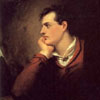-
 Love's Growth, Song: go and catch a falling star, Love's progress, To his mistris goi
Love's Growth, Song: go and catch a falling star, Love's progress, To his mistris goi
Can anyone tell me something about the following poems: Love's Growth, Song: go and catch a falling star, Love's progress, To his mistris going to bed? The main ideas or anything important about the poems... Thanks
-
Registered User

I can give you my personal interpretation of the poems, I did this last year, many agreed with me, some found it interesting, and some may feel it's off the mark. See how it suits you. If you're doing this as an AS bare in mind, you can write ANYTHING so long as you have sufficient evidence to back your claim. (I used this poem in my exam as a comparison to the main poem; I did very well on it, so hopefully it will be of use to you).
Song: Go, and Catch a Falling Star…
The title itself is ambiguous, it’s just song. It doesn’t reveal what it is about. It is ironic because it is called song, connected with happiness however it’s sarcastic and nothing very cheerful.
The poem lists impossible questions for the reader, possibly addressing another man in the poem.
The main point is questioning constancy in women, claiming you can’t find a woman who is both beautiful and chaste. The list of questions portrays the fact that like the questions are impossible, it is also impossible to find the beautiful and chaste woman.
Stanza 1:
Line 1 - Stars are used in conventional love poems; he’s using it for the opposite purpose.
A star is beautiful, as is a woman, but it’s a falling star suggesting a beautiful woman, whose chastity is in a state of deterioration. She is falling from grace similar to the devil who was a fallen angel, so beautiful women are fallen angels.
Line 2 - A mandrake plant supposedly screams when pulled from the roots, the cry being fatal. It was believed to resemble the human form. This line could mean, get a woman, and take her from her natural habitat (innocence, her supposed chastity) see how she’ll scream/moan - Sexual reference? Similarly, the mandrake plant could be an “ugly” woman, when taken from her natural habitat, or attempt to take her… she’ll scream. I.e. Refuse?
Line 3 – The past years referring to her youth, or the youth of her chastity… where has her innocence/virginity gone?
Line 4 – Interlinked with line 1, the Devil = the fallen angel i.e. woman! Devil because of her sin. Meaning - Who broke the woman’s virginity?
The cleft could also refer to woman’s personality as the cleft divides the hoof into two.
Line 5 – Woman are like Mermaids. Above the waist, they’re womanly and attractive but below the waist they’re not women. Possibly signifies that they should be chaste to be considered women. Also suggests deception, they lure men with their singing and their top halves as women do with their words and their faces but on closer inspection they’re treacherous. They’re not what they seemed. So he’s saying, teach me how to distinguish between the liars!
Line 6 - Teach me to protect myself from jealous people. -> Out of place, what do jealous people have to do with it?
Lines 7, 8, 9 – Find, Mind = rhyme, wind is also part of the rhyme as it was pronounced the same as the other two in Donne’s era. These lines are very slow. The rhyme was common at the time suggesting women are common? Women are boring like the rhyme! To him they’re all the same.
9 – How can we promote honesty/chastity? Apparently these traits won’t get you anywhere.
Stanza 2:
Lines 10, 11 – If you were born with second sight which gives you access to see things others aren’t as lucky to see…
Lines 12, 13 – Romantic sentiment, he’s using it for opposite purposes, probably to mock love.
Look to the future, go to when you’re old, you’re hair has gone grey/white.
Lines 14, 15 – You! You will tell me when you return of all the wonders you’ve seen.
16, 17, 18 – Again 16-17, slows down, teasing him, almost laughing and challenging. Implication - “I told you so” - He already knows what the man will reply.
You’ll promise there is no place (or era) where there is a woman who is both beautiful and chaste.
Stanza 3:
Line 19 – Mocking
He’s so sure of himself! He actually says, if you find one, do let me know! Because I’m positive such a thing is impossible!
20 – I’m sure such an “important journey” (religious imagery again) would be enjoyable.
21 – On the other hand, don’t bother, I wouldn’t go, implication: I’m certain it would be a waste of time.
No more difficult imagery, no more phrases which could mean more then one thing. This implies women were treacherous; they still are however they’ve become too obvious! We all know it now!
22 – We could meet next door perhaps (Donne and a beautiful & chaste woman).
23, 24 – I can assure you, her chastity would be gone before you finish writing a letter.
25, 26 – She’ll be treacherous to two or three other men.
Last lines seem bored and irritated.
---------
Just a quick note, when it comes to the metaphysical aspects, I'm not the one to ask... that part always gets me.
Last edited by TrulyByronic; 10-01-2006 at 05:02 AM.
 Posting Permissions
Posting Permissions
- You may not post new threads
- You may not post replies
- You may not post attachments
- You may not edit your posts
-
Forum Rules